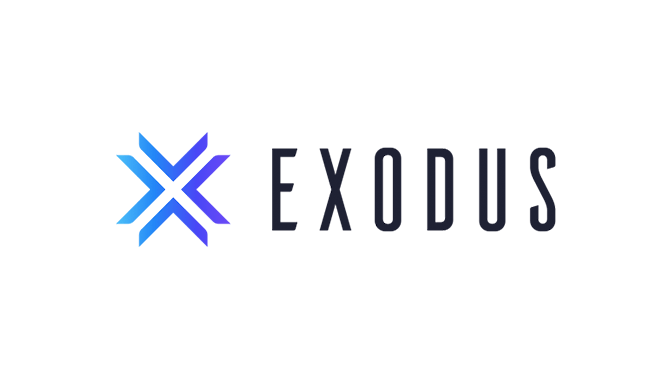If you're buying, trading, and selling cryptocurrencies, a cryptocurrency wallet is an essential addition to your arsenal. We're not just talking about a Bitcoin wallet either — there are a growing number of cryptocurrencies out there for you to invest in. (But just as a general warning: It’s a scammy, scammy world out there in the crypto space. So watch out!)
As you'd expect, we're not talking about physical wallets in the conventional sense. Instead, a crypto wallet is a little more modern, being either a piece of software installed on your computer or smartphone, or sometimes a piece of physical hardware. Some involve you trusting a company to hold your cryptocurrency while others offer offline storage. There's also the small matter of what kind of crypto they’re meant for. Some solely focus on Bitcoin, which remains the most famous cryptocurrency, but others also work for Ethereum and other digital currencies.
Ultimately, the best wallet is one that you can use easily while also being tricky enough for hackers to not be able to access. If you're new to the field, it can feel confusing, but don't worry — we've compiled a list of great crypto wallets for you no matter what your knowledge level is like right now.
Why do I need a crypto wallet?
Technically, you don't need a crypto wallet, but much like how a regular wallet keeps your cash and cards safer than simply carrying them around, a crypto wallet makes everything easier.
Besides giving you somewhere to collect everything together, ledger-style, so you can see exactly what crypto assets you own, it's also ideal for making Bitcoin transactions and other cryptocurrency transactions. Simply put, if you want to be organized with how you track and monitor your cryptocurrency, you need a crypto wallet.
What kinds of crypto wallets are there?
Not all crypto wallets are the same. There are various different types of wallet and each serves different purposes.
At their simplest, there are two types of wallet broken down into subsections. A hot wallet is one that is actively connected to the internet. That means it's really easy to make transactions with one but they're also more vulnerable to attack from nefarious sources. These typically break down to being either a mobile wallet or a desktop wallet, with the type depending on if you're using a smartphone app or desktop app.
Another term you may see is an online wallet or cloud wallet. These are very easy to use as you can access them from any location; however, your private keys are stored on another server, which can be risky. Generally, it's not advised to use them for large amounts of money.
A cold wallet is one that is not connected to the internet. That means there's no risk of being hacked but you do need to physically store items. One example is a paper wallet, which involves storing your Bitcoin or another cryptocurrency as a QR code that is printed out.
Another form of cold storage wallet is a hardware wallet. It lets you store your private keys in a secure physical device. The cryptocurrencies stored within the wallet are kept offline, meaning there's no chance of them being hacked. A hardware crypto wallet is a great way to keep your currency safe without needing complex technical knowledge to be sure of it. However, you run the risk of being unable to access your assets forever should you misplace the key.
Finally, there are custodial wallets. These are digital wallets where the private key or keys are held by the service provider. You access and spend money on it but you don't have full control over it. The service provider could even potentially stop you from transferring funds.
What is the safest type of crypto wallet?
There isn't really one type of truly safe crypto wallet. They all have different strengths and advantages largely depending on how you're looking after your currency.
On the surface, hot wallets appear to be the riskiest. That's because you're dependent on the security of a provider. By leaving your cryptocurrency on an exchange, you're trusting that company. That issue also continues if you transfer the funds to a web wallet or app service as — again — you're trusting that the source won't be hacked (and they have in the past).
Cold storage may seem like the best solution, with crypto hardware wallets seemingly unbeatable, right? Kind of. These may not be vulnerable to hackers as they're offline but they are susceptible to external damage, theft or simple loss of the hardware. Setup can also be a little confusing to beginners, and you still need to transfer funds online if you plan on making transactions.
Related to hardware wallets are paper wallets. These feel almost old-fashioned because they rely on you storing pieces of paper. You create QR codes for your currency before printing them out and storing them in a secure place such as a safe or deposit box. It's incredibly secure providing no one takes the paper from you and you don't lose it. You're also really reliant on a good quality printer and that no natural disasters can befall your storage place.
Like we said, there's no perfect solution when it comes to keeping your currency safe. You need to weigh up what works best for your needs.
What is the most convenient way to store cryptocurrency?
Like knowing what the safest method is, convenience all comes down to how you plan on using your cryptocurrency.
If you plan on only dipping into cryptocurrency, a Bitcoin wallet that is easily accessible such as one stored online should suffice. That way, you can easily trade and make transactions with minimum hassle. However, if you're thinking long-term and want to store significant sums of money then a cold, offline storage method is best, providing you have somewhere safe to store it. The latter is also only really convenient if you don't plan on trading frequently — otherwise you'll need to switch between online and offline regularly.
Will my Bitcoin grow in my wallet?
For the most part, unfortunately not. Unlike a regular bank account that may have interest added to investments, a crypto wallet is solely a means of storage. Just like a regular wallet, it's somewhere to keep your finances safe rather than to see them grow and develop.
There are some exceptions though, with the likes of Coinbase Wallet allowing you to earn interest, but there is a certain amount of risk to it with rates fluctuating.










































